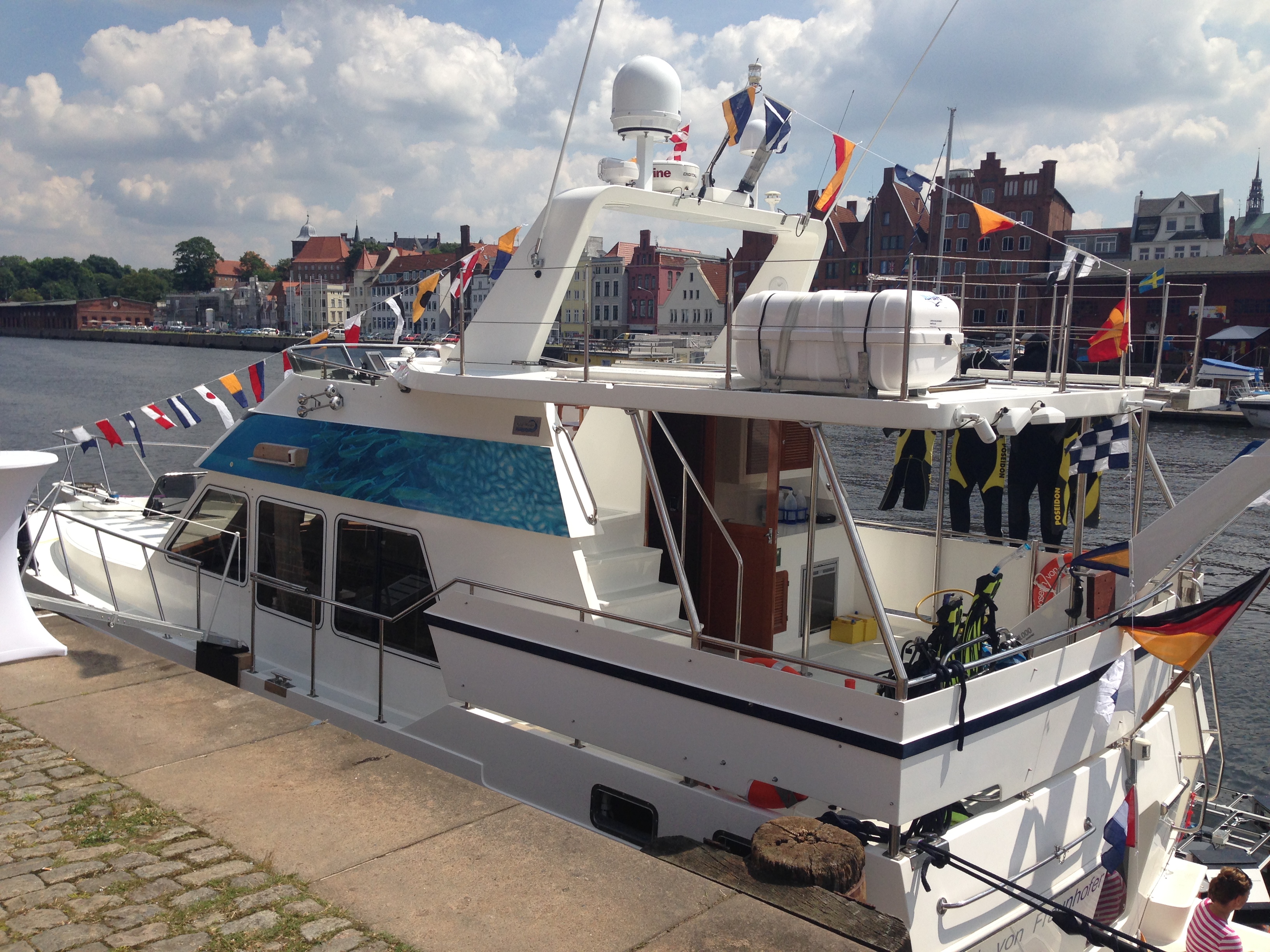The Fraunhofer IBMT has its own research ship for testing the sonars and water vehicles developed at the institute.
Between 2012 and 2013, the ship, a Baltic Trawler 42 built in 2007, was converted and fitted out as a research ship and is operated jointly, in accordance with the association's aims, for cooperative research and development purposes by the Fraunhofer-Gesellschaft as well as the Fraunhofer Institute for Biomedical Engineering (IBMT) and the Fraunhofer EMB.
With a length of 14 metres, the "Joseph von Fraunhofer" has state-of-the-art technical equipment and a laboratory for research expeditions, initially in the Baltic Sea. The research ship is perfectly equipped to test the special sonar devices (multibeam echo sounder, side scanner, sediment sonar) developed at the Fraunhofer IBMT in a real environment. The location of the ship in the Baltic Sea allows access to highly interesting areas for testing IBMT special systems for the ultrasound-based determination of fish stocks (species, size and gender determination with respect to biodiversity). Being docked at Lübeck also allows rapid access to areas where old ammunition (so-called UXOs – Unexploded Ordnance) was dumped after the Second World War. This can be precisely detected and identified with the sonar devices of the Fraunhofer IBMT and the surface vehicle "Hydrocrawler". There is a wide range of possible missions for the ship. For example, alongside the recovery of soil samples, fish, algae, plankton and shellfish, water temperature, pressure and conductivity can be measured. The special crane at the stern can be used for the lowering of technical equipment into the water such as the echo sounders, diving vehicles (AUVs) and surface vehicles developed at the Fraunhofer IBMT.
The ship is docked in Lübeck Harbour.
